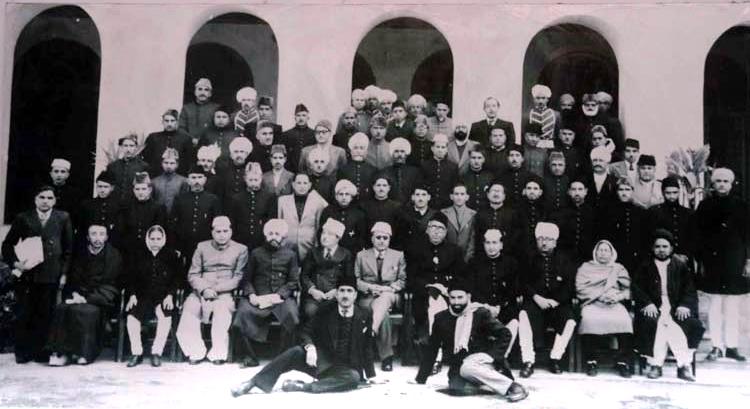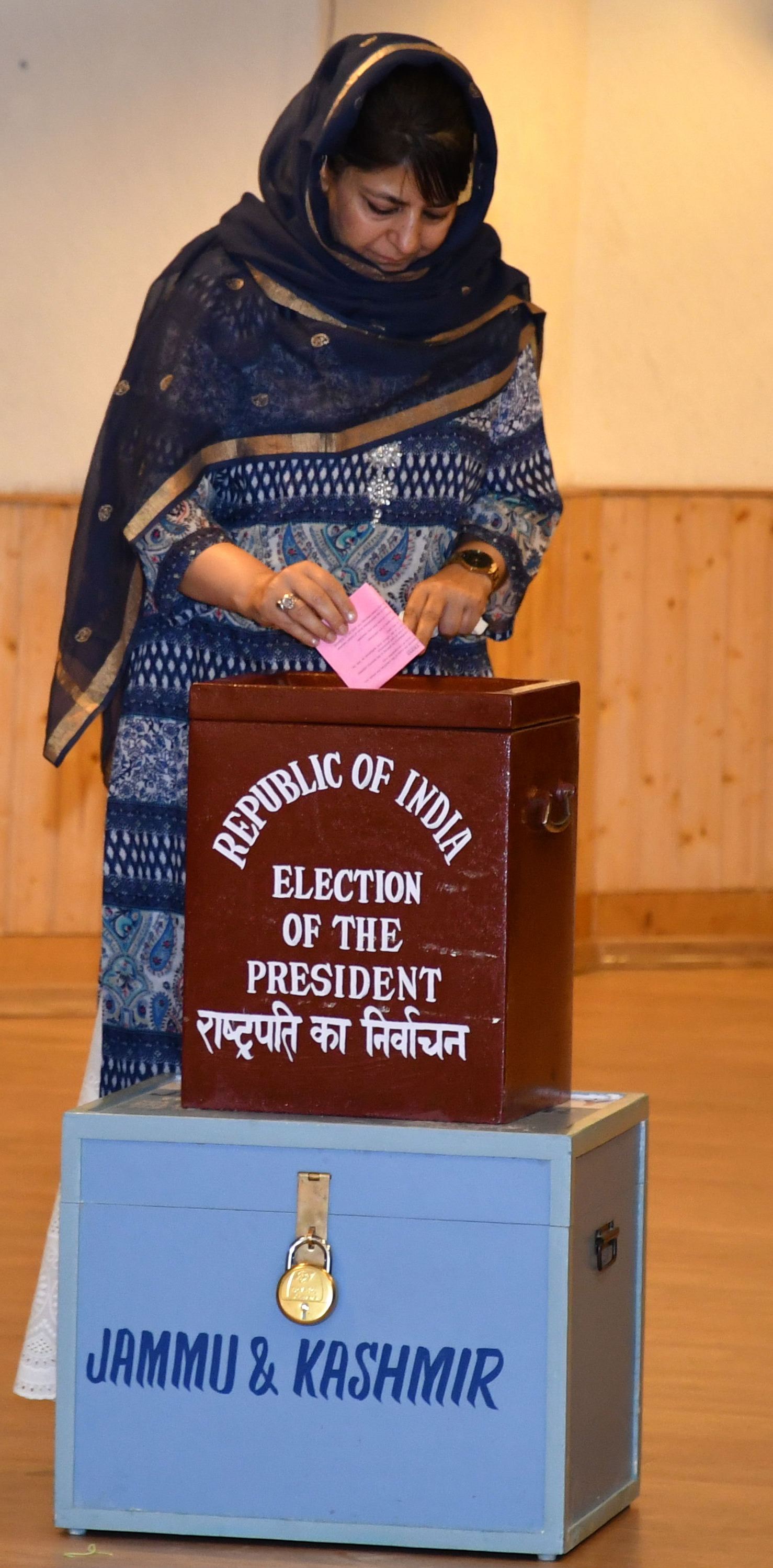On recommendations of the governor, the central cabinet approved certain changes in the state’s reservation laws that M J Aslam says is beginning of a new dangerous venture

Article 35-A is sub-judice before the Supreme Court as petitioners, who are proxies of India’s ruling class, want it to be declared unconstitutional in total disregard to the conditions under which it was inserted in the Constitution by the then President of India. The move is aimed at changing the Muslim majority character of Jammu and Kashmir and diluting the rights that state subjects enjoy. Article 35 A, inter alia secures employment rights of the State subjects in the state government jobs.
Any attempt to amend or change or tinker with this most important Article, as far as State Subjects are concerned, in any manner whatsoever, fully or partially, during the pendency of the matter before the Supreme Court, will be a gross contempt of the Supreme Court. The court has not heard or decided the matter as yet. But it seems that the ruling class, in view of the fast approaching LokSabha elections, is in somewhat haste to shake this Article by bringing Presidential Ordinance or Order so that the move gives them some advantage in the elections.
Fast approaching elections and pendency of the matter in the apex court have applied a whip to the ruling party for finding some indirect way of diluting this provision. On February 28, 2019, the central government passed an order with two legs. The first limb of the Order that has been passed approves the proposal of Jammu and Kashmir government regarding amendment to the Constitution (Application to J&K) Amendment Order, 1954/ Presidential Order, 1954.
Article 35A is a product of the Presidential Order of 1954. Both are intertwined. One cannot be separated from the other. So, in that sense, both are sub-judice in the Supreme Court. How is it possible to amend Order of 1954 when Article 35-A is very much based on it? So, the decision appears to be in violation of the matter which is pending before the court.
Secondly, the proposal regarding amendment to the Constitution (Application to J&K) Amendment Order, 1954/ Presidential Order of 1954 was moved by the Jammu and Kashmir governor who is an agent and nominee of the federal government. He or SAC is not a substitute for the state “government” as envisaged under Explanation to Article 370 (1) of the Constitution.

The second part of the Union Cabinet Order has brought an amendment to the Jammu and Kashmir Reservation Act, 2004, which “provide for reservation in appointments and admission in professional institutions for the members of Scheduled Castes, Scheduled Tribes and other socially and educationally backward classes and for matters connected therewith or incidental thereto.”
The Act provides for such reservation for the people living in the “areas adjoining the actual line of control”, which means the area declared as such by the Government of Jammu and Kashmir from time to time. At present, under the notifications of the state government, such people living adjacent to LoC are enjoying reservation quota of three per cent in appointments and admissions.
The Union Cabinet has, on governor’s recommendations, drastically changed the Act by extending its benefit to the people living near International Border between India and Pakistan in Jammu division. Besides, the reservation quota has been extended to 10 per cent. Again, it is quite surprising how the powers that vest exclusively in the state’s elected government under the law for making amendments to it can be exercised by the Union Cabinet on the recommendation of their constitutional nominee in the State.
The Union Cabinet does not seem to be competent to exercise legislative and executive powers of “elected government of the State of J&K”.Even if the objective to amend the said Act is to bring the people living in areas adjacent to IB at par with those living in areas adjacent to LoC, according to Arun Jaitley, Union Finance Minister, under Explanation to Article 370, the Governor is no substitute for elected Government of J&K. Explanation to Article 370 (1) reads as under:
Explanation: For the purpose of this article, the Government of the State means the person for the time being recognized by the President on the recommendation of the Legislative Assembly of the State as the Sadr-i-Riyasat (now Governor) of Jammu and Kashmir, acting on the advice of the Council of Ministers of the State for the time being in office”
The Governor of the State has not been appointed on the recommendations of the legislative assembly. In fact, there is no legislative assembly in existence as the State is under the Presidential Rule. In absence of cabinet of ministers, all decisions he takes under the law are actually the decisions of the central government. Governor is a constitutional agent of the centre and not a people’s representative.

Moreover, under section 2 (h) of the Jammu and Kashmir Reservation Act, 2004, the Government has been defined as “Government” which means the Government of Jammu and Kashmir.” It apparently means the elected government of the State. There is no provision in the Act that would indicate that Government for the purposes of the Act means also Governor or central government. So the cabinet order seems to be beyond the power of the Centre.
The central government cannot, on the recommendations of its own nominee, bring such drastic changes in the Presidential Order of 1954 or Jammu and Kashmir Reservation Act, 2004. It is a circuitous way of tinkering with Article 35-A. The Order seems to be in total violation of Article 370 where under any Presidential Order has to be passed only with “concurrence” of the state government. Obviously, consent or concurrence given by an “agent” (Governor) to the “principal” (Centre) is one and the same. The Governor is not the agent or elected representative of the people of the State.
Previously, such an attempt to extend laws to the State by the Presidential Order happened during Jagmohan’s tenure. Two NC leaders, Mohammad Shafi Uri and A R Rather challenged the order, which is reportedly pending in the state High Court.
Many eyebrows will be raised against this cabinet order since it needs to be explained and understood who the Scheduled Castes, Scheduled Tribes and “economically weaker sections” living in areas adjacent to the IB. So, it is clear that Constitution (Application to Jammu and Kashmir) Amendment Order, 2019 to be passed by the President under clause (1) of Article 370 on the recommendations of the Union Cabinet which in turn are recommendations of the State Governor are in violation of express provisions of Article 370, J & K Reservation Act, 2004 & pendency of the matter before the Supreme Court. The Order/Ordinance shall have a considerable impact on Article 35A and grave implications for the State Subjects in long run. It is total erosion of State’s legislative and executive powers.
(Author is an academician, storyteller, essayist and freelance columnist. A professional banker, the opinions are personal and not of the organisation he works for.)

